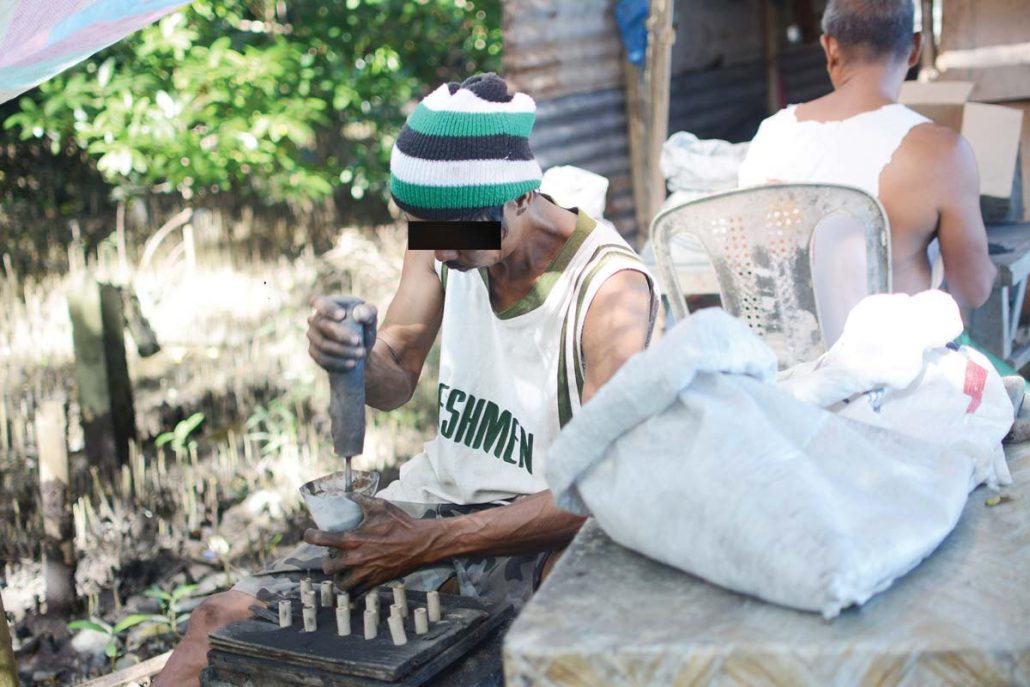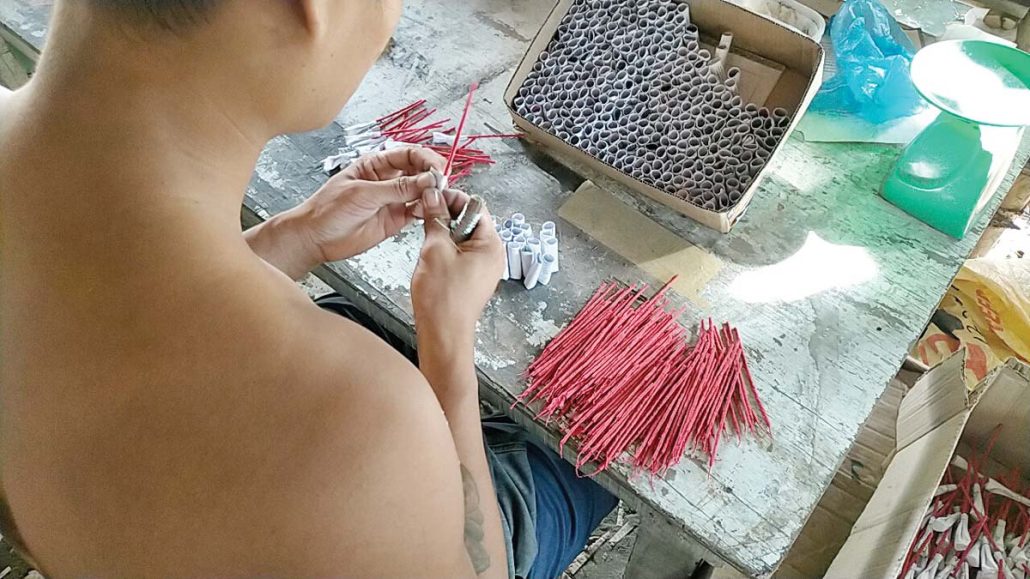
BY GEROME DALIPE IV
FOR DECADES, the firecracker industry in Arevalo, Iloilo City, has been a cornerstone of local tradition and livelihood, especially during the December holiday season. However, for veteran firecracker maker Elmer Muñoz, the future looks increasingly uncertain.
The industry is experiencing a sharp decline in sales due to a confluence of challenges, including heightened safety concerns, stricter government regulations, and changing consumer preferences.
Many local governments have implemented bans or restrictions on the use and sale of firecrackers, and Iloilo City is no exception, with the recent issuance of Executive Order No. 160, Series of 2024 by Mayor Jerry Treñas.


The order enforces stringent controls, including prohibiting hazardous fireworks such as super lolo and atomic big triangulo.
The ordinance is also restricting manufacturing zones to locations at least 300 meters away from residential areas.
The measure allows sales only in designated areas, such as sections of Circumferential Road 5 and Muelle Loney Street.
These regulations have disrupted traditional operations, increasing costs for small-scale manufacturers like Muñoz, who now face challenges in securing compliant production sites and permits.
Adding to the burden, economic difficulties have dampened consumer spending, with many households opting for simpler celebrations or alternatives to traditional fireworks.
Increased awareness of the environmental and health hazards posed by fireworks has also contributed to the shift.
“Sales have been declining year after year,” Muñoz lamented. “We rely on December to make up for the slow months, but now we’re unsure if we can sustain this business.”
Despite the challenges, stakeholders are calling for government support to help the industry adapt, including subsidies, training programs, or relaxed zoning requirements.
Others are exploring innovations such as eco-friendly firecracker alternatives to appeal to modern consumers.
Arevalo district in Iloilo City is renowned for two major products: flowers and firecrackers. The firecracker industry has been an important economic activity in the area for many years, providing significant income for hundreds of families, particularly those without regular employment.
Families like that of Muñoz, who inherited the business from her father, rely on the sale of firecrackers and pyrotechnic materials, especially during peak seasons such as the months leading up to Christmas and New Year.
The industry is a lifeline for many in the community, with people earning between P20,000 and P50,000 annually, largely depending on seasonal sales.
During the peak months of November and December, when demand for firecrackers is highest for various celebrations, many part-time workers, often with no steady employment, join the workforce.
The firecracker industry in Arevalo, Iloilo, which has traditionally been a significant source of income for many families, is currently facing several challenges.
Changing consumer habits, increased safety concerns, and stricter regulations are contributing to a decline in demand.
This has affected manufacturers like Muñoz, who has been selling firecrackers for years and inherited the business from her father.
Despite the industry’s role in providing income, especially during peak months, the uncertain future of firecracker sales during this holiday season reflects broader concerns about the industry’s sustainability.
Apart from Muñoz, other firecracker manufacturers from Arevalo, Iloilo, have expressed their frustration and financial hardship due to the challenges facing their industry.
The firecracker makers also face the issue of honoring advance payments made by customers for bulk orders.
With their products already in production, they are unsure how to fulfill these orders, leaving their customers in limbo.
Despite these difficulties, they have complied with all safety regulations, such as ensuring that there are water and sand supplies at their stalls and prohibiting smoking.
Furthermore, they have relocated their operations away from residential areas to minimize safety risks.
The firecracker industry in Arevalo, Iloilo, remains a key economic and cultural fixture, with the district known as the pyrotechnics capital of the Visayas.
However, this industry, which has supported many families for generations, is facing various challenges.
Despite its importance, especially during the holiday season, the sector has seen setbacks in recent years.
For instance, the 2008 economic crisis significantly slowed down sales, and the high cost and scarcity of raw materials have made production more difficult, further compounded by international supply restrictions.
Additionally, many customers are facing financial difficulties, leading to reduced demand.
The local firecracker manufacturers, like Muñoz, have found it increasingly difficult to make ends meet, especially as they have incurred loans to fund their operations.
Despite these challenges, the firecracker business remains a lifeline for many in Arevalo, providing income for both regular and part-time workers.
In response to the industry’s struggles, the local government has stepped in to improve safety and quality standards.
For instance, manufacturers have been encouraged to adhere to strict safety measures, including relocating production to less populated areas and ensuring that proper safety equipment is in place at sales stalls.
Despite the difficult circumstances, the firecracker industry continues to be an integral part of Arevalo’s economy and cultural traditions, especially during the festive season.
For now, the once-thriving firecracker industry of Arevalo faces an uphill battle to preserve its legacy amid evolving times./PN







